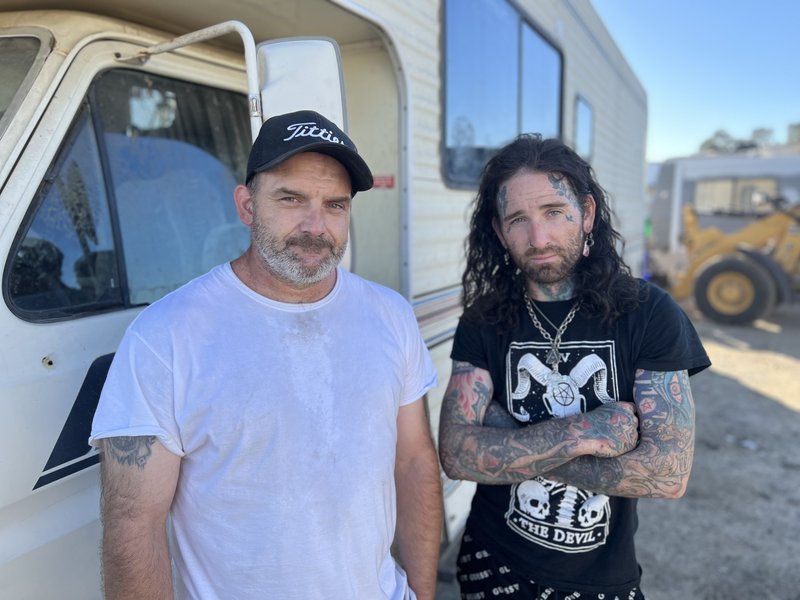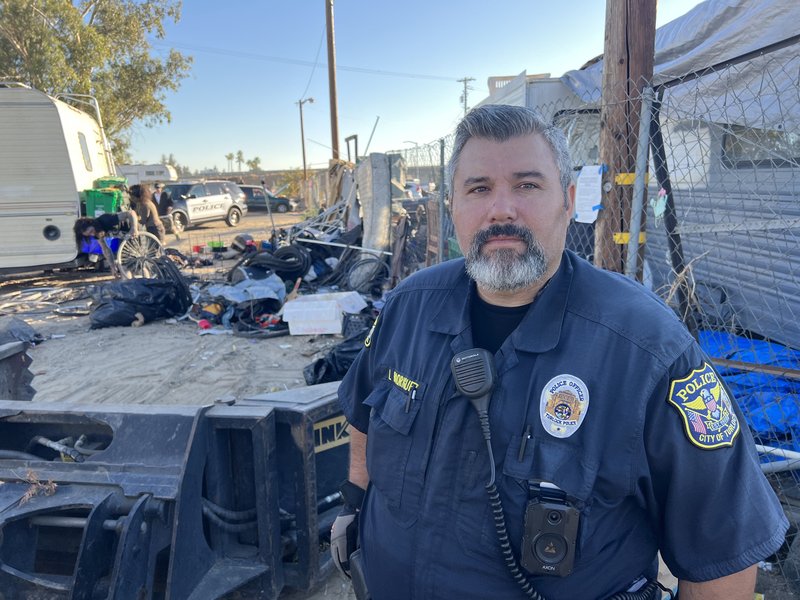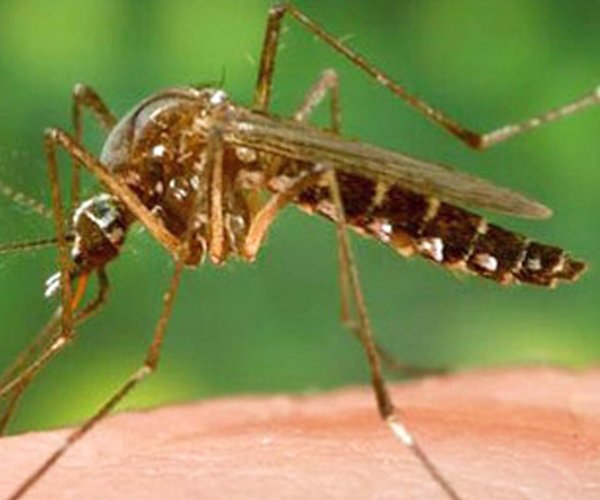EDITOR’S NOTE — The Turlock Journal is publishing a series of articles on the issue of homelessness in the city of Turlock. Each week, we’ll take a look at this complex problem from a different perspective: law enforcement, city government, business owners, non-profit groups, neighboring communities and everyday citizens. Today, we begin our series by talking directly to people experiencing homelessness.
Nobody wants to be homeless.
Nobody starts out thinking they’d like to live without shelter, heat, air-conditioning, running water, a toilet, a bathtub or a soft bed.
Yet, in the state of California, homelessness is a reality for about one out of every 240 residents. Here in Turlock, about one in 340 residents is living on the streets, according to a point-in-time survey conducted by Stanislaus County earlier this year.
And homelessness doesn’t discriminate. It affects men, women, children, educated people, non-educated people, healthy people, sick people, people who once had money, people who never had money … but more often than not, homeless people are struggling with mental illness and/or addiction, according to Manuel Jimenez, regional director of La Familia Central Valley, a provider of behavioral health services.
“Substance abuse and mental health disorders are the main factors we see,” said Jimenez. “And the mental health issues can vary from trauma associated with sexual abuse, physical abuse or PTSD associated with military combat.”

Nick and Toby are homeless men who were cleaning up their part of an encampment, by order of the Turlock Police Department, at Taylor Road and Highway 99 on Friday morning.
Toby was once a roofer and Nick once drove a forklift in a warehouse.
Nick has been homeless for about four years. Toby, off and on, for a decade.
“Once you’re on the streets it’s nearly impossible to get off them,” said Nick, whose camper doesn’t feel much like a home without heat, electricity or plumbing. “It’s like a hole that you can never dig your way out of. It’s impossible. You need help from somebody.”
Though they’d like to get work in their respective fields, both say there are obstacles.
Nick pointed out that the cost of driving to and from work — sometimes to neighboring communities — isn’t cost effective in his gas-guzzling camper. Toby pointed out that being homeless creates a lack of self-esteem that’s hard to overcome.
“It’s tough to apply yourself to getting a job,” said Toby, who earns about $40 per day recycling aluminum and plastic. “It’s just tough, dude, it really it is. To be clean-cut and feel good about yourself and go in and get a job. It’s tough to look somebody dead in the eye and say, ‘Hey, I’ve got it together, I’m going to be here on time, I’m going to be clean, I’m going to have my act together, never be late, it’s tough. Nobody wants to hire somebody that’s stinky.”
At the same encampment, Richard and Pamela also dwell in a camper, along with their seven puppies.
Richard was changing a flat tire on their vehicle when Pamela emerged from the camper into the sunlight, smoking a cigarette and holding one of the pups.
Pamela lived in Merced when her boyfriend at the time passed away. Later, her house burned down and she’s been on the street since. Richard’s wife passed away eight years ago, igniting a chain of events that left him without a home.
They said it’s hard to stay positive.
“It’s extremely hard sometimes,” said Richard. “It seems like every step forward you take, you’re knocked back 10 steps. Something usually horrible is gonna happen right after something good happens. That’s how it always works for me.”
Richard has had trouble finding work, he said, because of health issues. He has a hernia and suffers from chronic kidney stones.
“You know what? All I really want is to get a house and to get a normal job and to pay bills and live like a normal person,” Richard said. “I don’t want to get rich. I just want to have a normal life. I do. I don’t like being homeless, I don’t like being stereotyped."
But he knows the stereotype exists. He encounters it daily.
“If you’re a people person, you can tell if somebody wants to better themselves or if they’re just BS’ing you. You can look them right in the eye and tell. They say ‘Don’t judge a book by its cover.’ Well, I think the opposite. I think you can judge a book by its cover. A lot of people are exactly what they look like.”
Neighborhood Resource Officer Ian Rodriguez doesn’t judge. He cares about the homeless people with whom he comes into contact.

“I care about them tremendously,” said Rodriguez. “But I have to balance what’s good for the citizens of this community, versus what’s good for the people who are homeless versus what’s enforceable by law versus my own heart.”
As Toby, Nick, Richard and Pamela collected their belongings and assisted in the clean-up project, a bulldozer droned in the background, filling up a garbage truck. During his first Friday clean-up, Rodriguez and his crew collected 12 tons of refuse. Lately, they’ve been averaging about a quarter of that. That’s real progress.
But Turlockers don’t see three tons of garbage as progress.
During Thursday night’s town hall meeting on homelessness, held at the Turlock Senior Center — there’s another scheduled for Oct. 4 at the Carnegie Arts Center, 250 N. Broadway — about 50 city residents were on hand to hear from Rodriguez, Police Chief Jason Hedden, CARE program manager Raul Dominguez, city attorney George Petrulakis, city manager Reagan Wilson and Katie Quintero of the city’s planning department.
The nearly three-hour meeting was, at times, contentious. But for the most part, residents were restrained and thoughtful. During his presentation, Hedden displayed a slide on the projection screen that showed 84 percent of Turlockers see homelessness as the most serious issue facing the city. And while they see homelessness as a problem, they do not see the impact Rodriguez is having on a daily basis.
“I’ve been doing this job long enough that I’m confident in using my own discretion,” said Rodriguez, the department’s lone NRO. “There’s the letter of the law and then there’s the spirit of the law. And we have to consider the spirt.”
Rodriguez had issued enough warnings and tagged enough vehicles at the Taylor Road encampment that he would’ve been wholly justified in having it bulldozed, impounding all the property, and sending the homeless on their way.
“But it was 114 degrees,” said Rodriguez. “What am I supposed to do, send them out into that heat? That’s dangerous.”
On Wednesday, in Denair Park on Main Street at Lyons Avenue, Gregory and Mary Jo were seated next to a deconstructed tent, which covered their belongings, including a small Jack Russell terrier named Excalibur. The dog seemed to enjoy trying to find his way out from underneath the tent.
They’d just been visited by Rodriguez, who put an orange tag on their car, which means they have to move the vehicle from its current location.
Gregory is trained as a chef, and has also done landscaping work, but suffers from seizures. Mary Jo has three sons in Washington, but doesn’t want to live there. Even if she did, she doesn’t have the means to travel that far.
Gregory has been homeless for the last two and half years; Mary Jo for six.
“People throw things at us,” said Mary Jo. “Water bottles, lemons, firecrackers … just to be jerks.”
Mary Jo wants others to know one thing: It could happen to them, too.
“I want people not to judge us, because a lot of people are one paycheck away from being homeless,” said Mary Jo. “And when they’re out here, they’ll find out what it’s like.”





